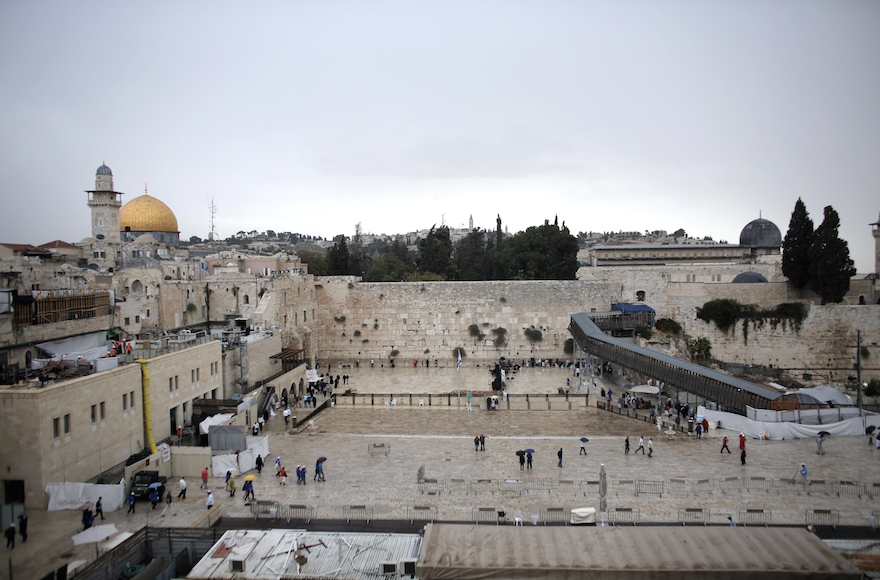JERUSALEM (JTA) — Israel’s Foreign Ministry sent a letter to members of a United Nations committee condemning a draft resolution that negates Jewish historical ties to the Temple Mount and Jerusalem.
The World Heritage Committee of the United Nations Educational, Scientific and Cultural Organization, or UNESCO, will consider the joint Palestinian-Jordanian resolution on “the Old City of Jerusalem and its walls” during the organization’s 10-day annual meeting in Istanbul, Turkey, which ends July 20.
The draft refers to the Temple Mount 10 times as Al Haram Al Sharif, the Islamic term for the Temple Mount, without mentioning that it is the holiest site in Judaism, according to UN Watch. It also uses the term Buraq Plaza three times, placing Western Wall Plaza in quotes, appearing to deny a Jewish connection to the site. Israel is repeatedly referred to as the “Occupying Power” in Jerusalem.
A similar resolution was adopted by UNESCO’s executive board in April.
“Again, UNESCO is considering the adoption of a completely one-sided draft resolution on the Old City of Jerusalem that deliberately ignores the historical connection between the Jewish people and their ancient capital,” reads the letter sent Monday and signed by Dore Gold, director general of the Foreign Ministry. “The resolution also fails to acknowledge Christianity’s ties to Jerusalem. It refers to the area of the Temple Mount only as a ‘Muslim holy site of worship.’
“The resolution is full of distortions and is totally disconnected from reality on the ground. We urge you to oppose this effort to distort history, which will offend the members of the Jewish and Christian faiths, and undermine the credibility of UNESCO in the future.”
The committee is made up of 21 constituent nations: Angola, Azerbaijan, Burkina Faso, Croatia, Cuba, Finland, Indonesia, Jamaica, Kazakhstan, Kuwait, Lebanon, Peru, Philippines, Poland, Portugal, Republic of Korea, Tunisia, Turkey, Tanzania, Vietnam and Zimbabwe.
JTA has documented Jewish history in real-time for over a century. Keep our journalism strong by joining us in supporting independent, award-winning reporting.






